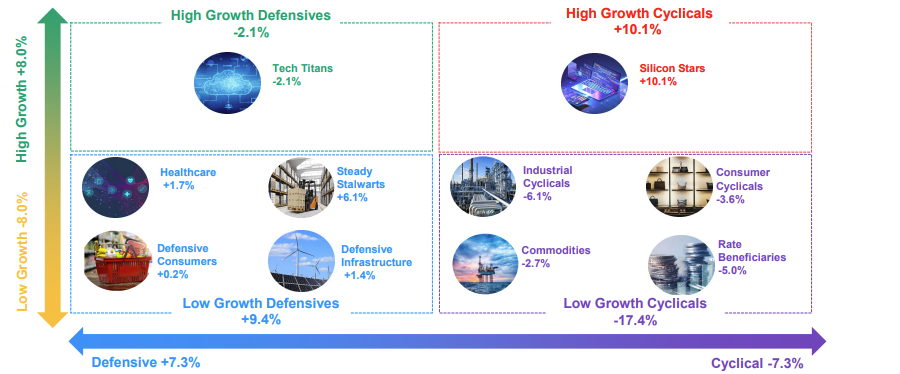Bonds are attractive – we’ve heard that many times already this year.
The latest Calastone data has quantified exactly how popular they are, with investors withdrawing $7.5bn of capital from equity funds in 2023 and splashing $22.2bn into fixed income to lock into high yields.
But it’s perhaps more unusual to hear it from an equity manager such as James Cook, co-manager of the JPMorgan Global Growth and Income fund.
Cook said: “The [equity] market is not particularly attractive in terms of valuations and certainly not attractive if you compare it to bonds”.
And that’s not the only struggle that investors are facing when investing in equities.
“Another issue is profit margins, which are at extremely high levels relative to history. We consider 2010 to 2019 to be normal years – after the great financial crisis and before Covid,” Cook said.
“Post 2019 we had record stimulus, record demand, supply chain swings, and guess what, profit margin scaled up.
“Now, what we haven't seen yet is the demand-side effects. We think it is more likely that profit margins will come back to pre-Covid levels than stay at the levels we are seeing today. That’s an overall issue of the market.”
The way that the manager tackles this problem is by investing 82% of the portfolio in high-quality companies, which, however, won’t be immune to the anticipated re-ratings.
“We have a lot of data to suggest that these companies will get their earnings cut a lot less than the rest of the market,” he said.
But currently, equity markets are also showing another divergence from the norm – one that the manager finds beneficial.
“Looking at the most attractively-valued stocks versus the least attractively-valued and analysing their multiples through time, we see more opportunity to generate alpha the further those multiples spread apart,” he said.
“Right now, that spread is very wide, so there’s a decent ability to generate stocks-specific alpha by taking advantage of these possibilities. That's the only element that we find very attractive.”
Cook remained “excited” by the opportunities in equities and said investors should be too.
Three-quarters of the sectors in which he invests returned “positive alpha”, which “should just give shareholders more confidence in the consistency and versatility of that alpha which makes us uniquely attractive”, he said.
The trust has been the top performer in the seven-strong IT Global Equity Income sector over 10, five, three and one year, returning 22.6% in 2023 against 9.1% of the average peer, as shown in the chart below.
Performance of fund vs sector and index in 2023
Source: FE Analytics
The portfolio is currently leaning into high-growth and defensive names. The managers are favouring high-growth cyclicals, with the Silicon "Stars" being a 10.1% overweight, and low-growth defensive companies, especially exchanges.
Current positioning of the trust
Source: JPMorgan Asset Management
“We like exchanges because they benefit from volatility, so if we’re going for a recession, volatility picks up and their trading volumes go up too. An example would be the Chicago Metal Exchange.”
“We also favour healthcare, consumer and infrastructure sectors,” Cook concluded.




